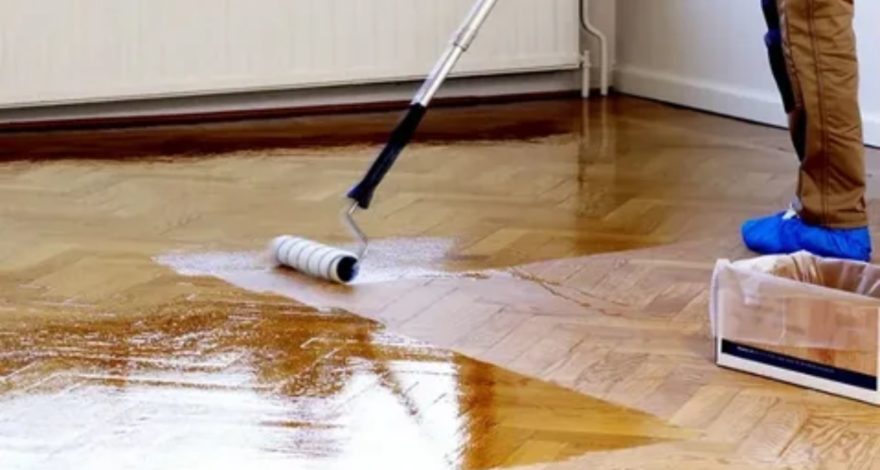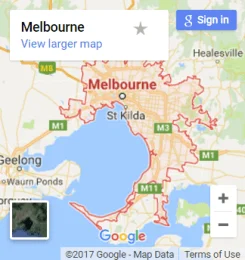Wood floors add warmth and elegance to any home, enhancing its overall aesthetic appeal. To maintain their sheen and longevity, it’s crucial to keep these floors clean and in top condition. While many opt for commercial wood floor cleaners, the trend of DIY solutions has proven just as effective and far more economical.
Here, we will unveil eight effective floor polish Melbourne options that can restore shine to your floors without causing harm or necessitating hefty expenditures.
Popularity and Benefits of DIY Wood Floor Cleaners
DIY wood floor cleaners are fast gaining momentum among the eco-conscious and budget savers alike. Homeowners are increasingly ditching store-bought chemicals in favour of easily concocted mixes made from everyday household items. These homemade solutions not only offer a non-toxic and environmentally friendly alternative but also allow for customisation based on the specific needs of various wood floors and personal scent preferences.
From vinegar and water solutions to more sophisticated mixes involving essential oils and black tea, these cleaners ensure clean, shiny floors with minimal risk and expense.
Effective Homemade Wood Floor Cleaner Recipes
1. Basic Vinegar and Water Solution
One of the simplest and most cost-effective wood floor cleaners can be made using just vinegar and water. A popular choice for its disinfectant properties, vinegar works excellently to clean without leaving harmful residues.
Combine ½ cup of white vinegar with 1 gallon of warm water in a bucket. For those sensitive to the smell of vinegar, adding a few drops of essential oils like lemon or lavender can mask the scent and add a fresh aroma to the cleaning solution. This solution is perfect for general cleaning and maintaining the shine of your hardwood floors.
2. Hardwood Floor Cleaner with Essential Oils
Enhancing the basic vinegar solution, adding essential oils not only combats the strong vinegar odour but also imbues the room with a pleasant fragrance. Essential oils such as lemon, orange, or lavender have antiseptic properties and can uplift the mood of your living space.
Simply add a few drops to your vinegar and water mixture before mopping. This not only cleans but also leaves a subtle, pleasant scent.
3. Black Tea for Enhanced Shine and Cleaning
For floors that need a bit more than standard cleaning, black tea can be a fantastic addition to your cleaning regimen. The tannic acid in black tea helps clean the floor while leaving a beautiful shine. Boil 4 cups of water and steep three black tea bags for about 10 minutes.
Remove the bags and dip a clean mop into the tea, wring it well, and mop the floor effectively. Finish by drying with a clean, dry microfiber cloth.
4. Dish Detergent
Dish detergent is particularly useful for removing greasy spots or film from cooking. Mix a few drops of mild dish detergent (Dawn is recommended) with a gallon of water. For extra cleaning power, add a teaspoon of white vinegar to cut through grease and grime efficiently.
Always ensure to wring the mop well to avoid using too much water on wood floors and dry any damp areas with a microfiber cloth.
5. Olive Oil and Lemon Juice for Polishing and Stain Removal
Olive oil combined with lemon juice not only cleans but also nourishes your wood floors, giving them a beautiful, natural polish. Mix ¾ cup of olive oil and ½ cup of lemon juice into a gallon of warm water.
Use this mixture to mop the floor, nourishing and cleaning simultaneously. There is no need to rinse or dry, as the water will evaporate, leaving behind a polished finish.
6. Vegetable Oil-Based Cleaners for Preservative Cleaning
For those who prefer not to use water on their floors, a mixture of vegetable oil and vinegar can be a safe alternative. Create a solution using two cups of vegetable oil and two cups of vinegar in a spray bottle.
Lightly spray on the floor and wipe with a microfiber cloth. This method not only cleans but also leaves a protective layer that shines.
7. Plant-Based Soap for a Gentle, Effective Clean
If you are looking for a less harsh cleaner, consider a plant-based soap mixed with water. A few drops in a gallon of your regular vinegar and water solution can gently clean the surface without risking damage to the wood.
This is particularly useful for delicate wooden floors where traditional soap may be too harsh.
8. Specialised Cleaners for Tough Stains and Greasy Floors
For tougher stains or heavy grease, especially in kitchen areas, blend a stronger solution using one teaspoon of white vinegar, 2-3 drops of Dawn dish soap, and a spray bottle of warm water. Spray on the affected areas and mop up quickly.
This method ensures that the tough stains are handled without saturating your wood floors with moisture.
Advantages of Using Homemade Cleaners Over Store-Bought Products
Cost-Effectiveness and Easy Accessibility of Ingredients
Homemade wood floor cleaners are significantly cheaper than commercial products. The ingredients required, such as vinegar, oils, and dish soap, are staples in most households or are readily available at local stores, making it not only a budget-friendly option but also convenient.
Environmental Benefits and Reduced Chemical Exposure
By opting for natural ingredients commonly found in the kitchen, you reduce the exposure to synthetic chemicals that can be harmful to your health and the environment. These DIY cleaning solutions help maintain a safer home environment while effectively cleaning and preserving your wood floors.
Adaptability to Different Wood Floor Types and Finishes
These homemade solutions can be adjusted according to the type of wood and the finish of your floors. Whether your floors are sealed with polyurethane, varnished, or untreated, simple adjustments in the ingredients can provide effective cleaning without damaging the surface. Always test a small, inconspicuous area first to ensure compatibility.
Best Practices for Mixing and Storing Homemade Cleaners
To ensure the effectiveness of your floor polish Melbourne, it’s crucial to follow some basic guidelines for mixing and storing them. When preparing cleaners, always use clean containers and utensils to avoid contamination that could damage your floors.
For instance, mixing vinegar and water for a basic cleaner should be done in a clean bucket, using distilled water to prevent mineral buildup. If you’re adding essential oils for fragrance, drop them in carefully and mix well to distribute the scent evenly.
For storage, keep your homemade cleaners in clear, well-labelled containers. Avoid using metal containers for storage, especially with vinegar-based cleaners, as the acidity can corrode metal over time. Instead, opt for glass or plastic containers, and store them in a cool, dark place to maintain their efficacy. Always check your mixed cleaners before use; if you notice any strange smells or discolouration, it’s safer to dispose of the mixture and create a fresh batch.
Techniques for Safe Application to Preserve Wood Integrity
When applying DIY cleaners to your wood floors, the technique can significantly impact the longevity and appearance of your flooring. Always begin by testing the cleaner on a small, inconspicuous area of your floor to check for any adverse reactions. Once you confirm the cleaner is safe, apply it using a soft cloth or a microfiber mop to prevent scratching.
Remember to wring out mops or cloths thoroughly to ensure they are damp, not wet, which helps protect the wood from excessive moisture that can lead to warping or staining. For cleaners utilising olive oil and lemon juice for shine, apply a thin coat and buff promptly to enhance the floor’s natural lustre without leaving residues that could attract dirt or create a slippery surface.
After cleaning, go over the floors with a dry microfiber cloth to pick up any remaining dampness and to help buff the surface lightly, which enhances its shine and ensures a uniform finish.
Recommendations for Routine Cleaning and Maintenance
Maintaining the beauty and durability of your wood floors involves regular, careful cleaning coupled with periodic deep cleaning sessions. Here are some guidelines:
- Regular Dusting and Sweeping: Before applying any liquid cleaners, always sweep or dust mop your floors. This removes surface dirt and debris and prevents scratches or abrasions caused by particles left on the floor during wet cleaning.
- Weekly Damp Mopping: Using your DIY cleaner, such as the simple vinegar and water solution, perform a weekly damp mop. For areas with higher traffic, consider slightly more frequent cleaning to prevent dirt buildup.
- Immediate Spill Clean-ups: To prevent stains, wipe up spills immediately with a soft cloth or paper towel. For tougher spots, such as oil or wine, use your homemade spot cleaner with vinegar and linseed oil to dissolve and lift the stain before it sets.
- Periodic Deep Cleaning: Depending on the foot traffic and the amount of wear and tear, schedule a monthly or bi-monthly deeper clean using solutions like black tea for enhanced shine and colour richness or a mild soap solution for general grime removal.
- Protector Application: After deep cleaning sessions, consider applying a thin coat of DIY polish made from olive oil and lemon juice to protect against future dirt and provide a beautiful sheen.
Following these steps ensures your wood floors remain clean, shiny, and well-maintained, prolonging their life and enhancing the beauty of your home.
Conclusion
Throughout our exploration of DIY wood floor cleaners, we’ve discovered a variety of options that ensure effective cleaning, enhance the natural beauty of wood, and offer added polish and protection. Some standout solutions include vinegar and water for a simple and cost-effective clean, black tea, which utilises tannic acid to remove dirt and add shine, and a degreaser blend of Dawn dish soap and vinegar for tough kitchen grease.
These homemade recipes not only maintain the pristine condition of wood floors but often do so with less expense and fewer chemicals than store-bought alternatives.
So, why not give them a try? Go ahead, make your floor polish Melbourne at home. It’s easy to make, often more economical and can be a delightful step towards a healthier, more sustainable home.
And if you are looking for professional results, you can trust Total Floor Sanding And Polishing. Our team is dedicated to bringing top-notch results for any floor, increasing its lifespan and restoring the old shine. Let’s discuss your needs, and we will enhance the ambience of your home!


